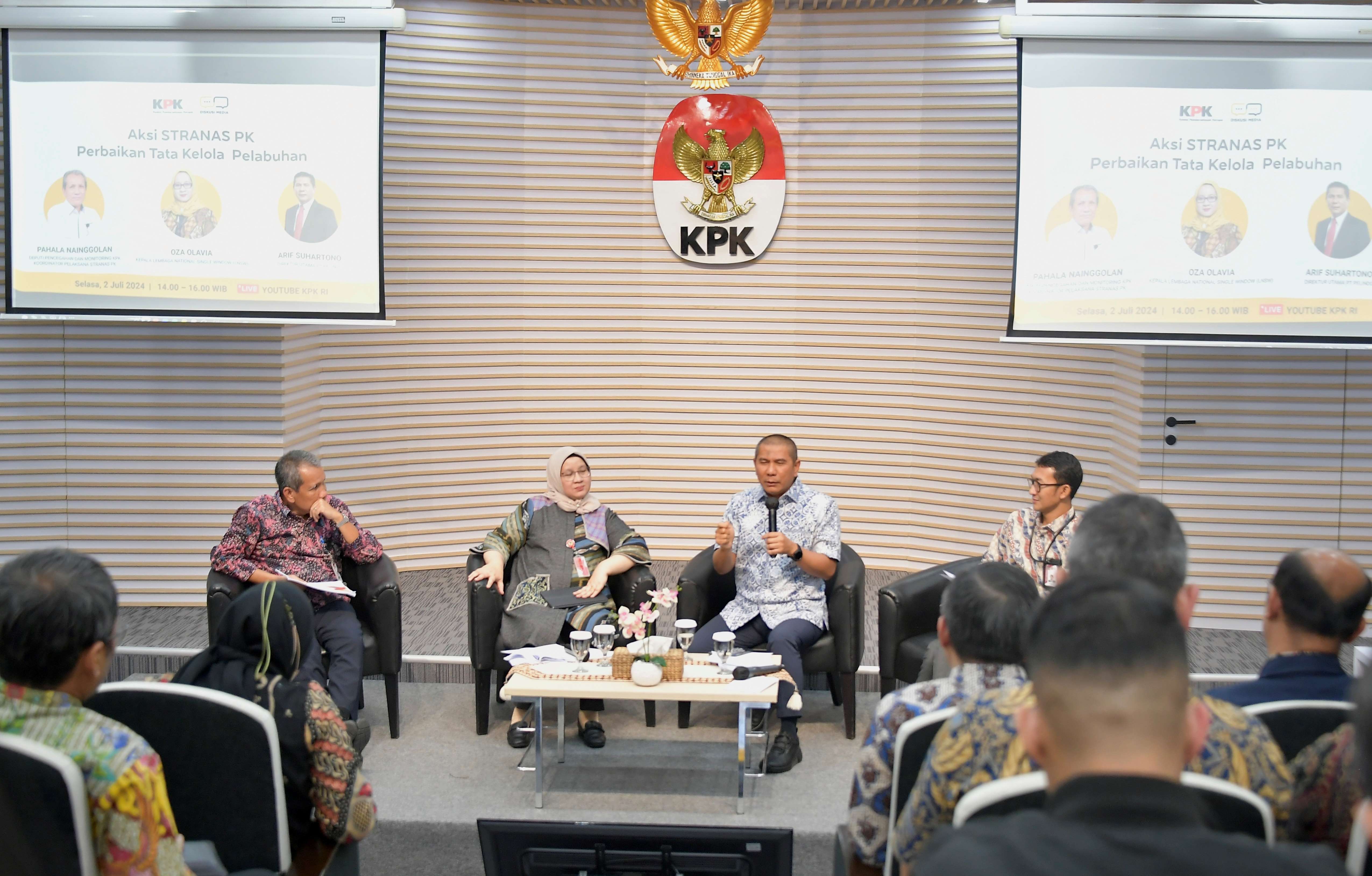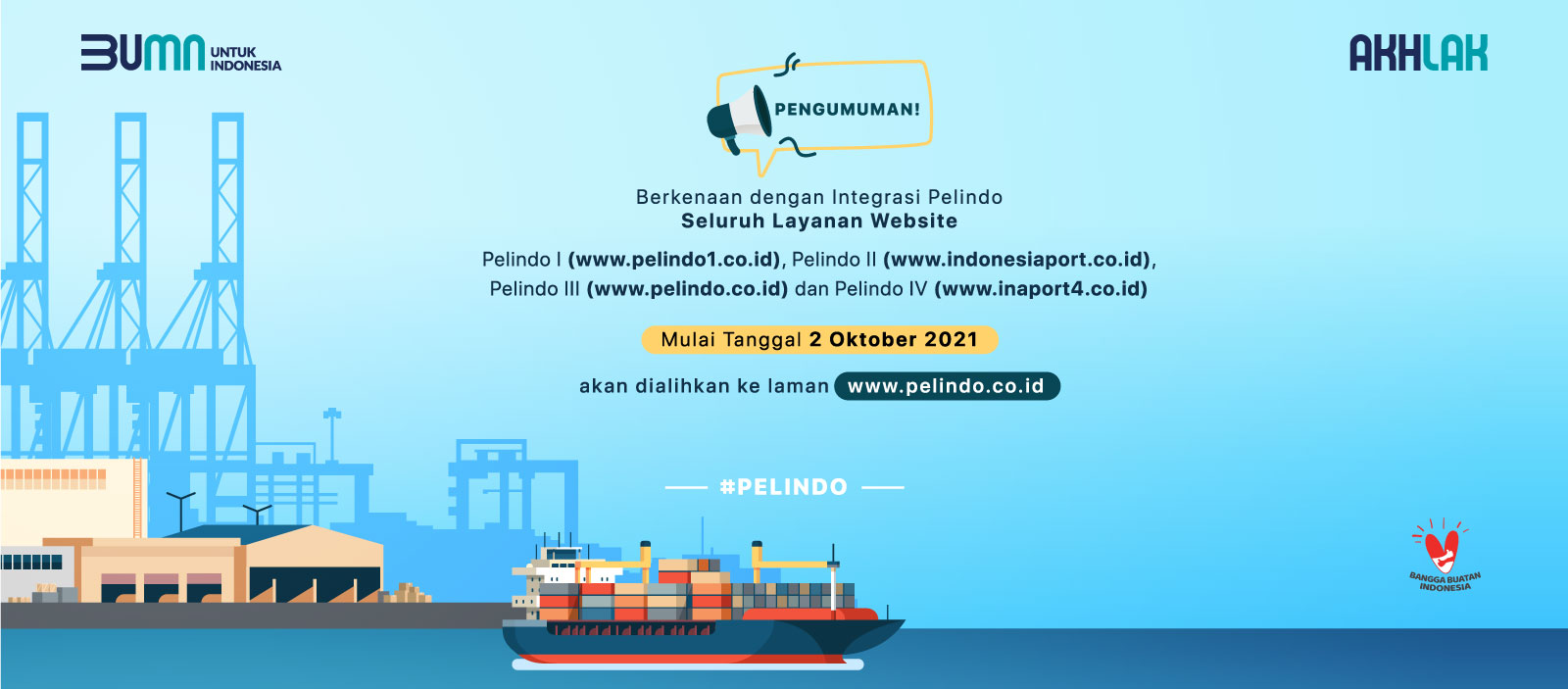"We are indeed trying to improve governance at the port by integrating the systems of 18 ministries/institutions that have authority at the port without reducing their authority. We make the business process simpler, we utilise digital technology so that everything runs smoothly and the time is more efficient and will certainly reduce costs. This means that digitalisation and integration of processes are not only in ministries/institutions, we also connect with SOEs, we also connect with the private sector," Oza explained.
The same thing was also conveyed by Pelindo President Director Arif Suhartono. He said that with digitalisation at the port, processes related to finished goods are much better. "Everything is controlled from the system. How to shorten the port stay so that in the end the capacity can increase. The beauty of transformation is increasing capacity without excessive investment, sometimes even without investment," he said.
The port digitisation process also has an impact on state revenue for the ministries/institutions that have port services. In the PNBP of the Ministry of Transportation with the Directorate General of Sea Transportation work unit through the implementation of Inaportnet from 2021-2023 since the port reform action took place, an increase of 116.05% by 4.278 Trillion Rupiah.
Up to 15 months into the implementation of the 2023-2024 action (B15), the Port Governance Reform Action achieved the highest achievement (63.64%). This action aims to improve port services by simplifying business processes and institutional governance at the port so as to provide certainty of service time and reduce high logistics costs at the port.
Another port action development is the Domestic Manifest Service Information by the Ministry of Transportation and the Ministry of Trade. The goal is to provide transparency and obtain data on commodity distribution as an effort to prevent hoarding by unscrupulous individuals that results in scarcity.
In this media discussion, port stakeholders Rifani, Head of the Sub-Directorate of Foreign Traffic at the Directorate General of Sea Transportation, Chotibul Umam, Head of the Sub-Directorate of Import at the Directorate General of Customs, Achmad Farchanny, Director of Health Surveillance and Quarantine at the Directorate General of Disease Prevention and Control (P2P) of the Ministry of Health, Ikhwandi from the Indonesian Quarantine Agency and Iwan from Immigration were also present.
National Logistic Ecosystem (NLE) Service Effectiveness Survey 2023
The 2023 NLE Service Effectiveness Survey was conducted by the Australia Indonesia Partnership Programme for the Economy (Prospera) at 14 national ports, with a sample population of 1,393 respondents.
The survey results showed time efficiency compared to the previous process in online delivery order (DO) services by 40.3%, online container handover letter (SP2) by 47.0%, SSm Quarantine Customs (QC) by 73.4%, SSm Carrier by 21.6%, and SSm Licensing by 56.4%.
In addition to time savings, there were also cost savings in online delivery order (DO) services by 25.7%, online container delivery letter (SP2) by 32.4%, SSm Quarantine Customs (QC) by 46.1%, SSm Carrier by 45.5%, and SSm Licensing by 97.8%.
The efficiency assessment included testimonials from service users who stated that NLE services help companies work more effectively and efficiently, in terms of time and cost.


